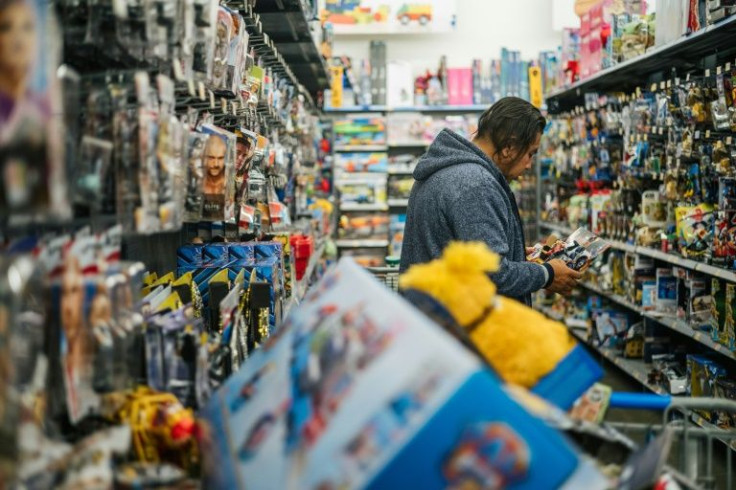More Holiday Shopping In Stores This Year: US Retail Group
More US consumers shopped in stores over the Thanksgiving holiday weekend compared with last year and fewer bought online, a leading retail trade group said Tuesday.
The National Retail Federation (NRF) cited widespread Covid-19 vaccinations in the United States as the driving force in the shift as it reported a drop in overall shoppers in the just-finished stretch but confirmed its outlook for a "record" season overall.
The group's updated forecast followed an industry survey showing consumer confidence fell in November as inflation and coronavirus cases spiked, while concerns about the latest Covid-19 variant weighed on stocks in Tuesday trading.
NRF President Matthew Shay said widespread vaccinations meant a "dramatically improved health environment" compared with the 2020 season.
Shay described overall economic conditions as "very favorable" given low unemployment and healthy consumer balance sheets, though he also acknowledged challenges that include shortages of some popular items and a labor crunch.
Physical retailers saw a jump of 13.6 percent to 104.9 million shoppers over the five-day holiday stretch compared with 2020, while online shoppers fell 12.1 percent to 127.8 million, according to the NRF.

In all, just under 180 million Americans shopped over the holiday weekend, which comprised Thanksgiving, the "Black Friday" kickoff of the season and "Cyber Monday," which centers on e-commerce promotions.
The overall figure was down 3.5 percent from the 2020 level but above a four-year average. Spending per consumer also dipped, but retail experts attribute this decline partly to a trend of shoppers spreading out their purchases over a longer period of time.
NRF reaffirmed that it expects overall sales to jump between 8.5 and 10.5 percent this season to as much as $859 billion.
Shay said it was "obviously early" to assess the potential drag of the newly discovered Omicron variant of Covid-19 on the shopping season.
He noted that in past Covid waves, shoppers have shifted spending from experiences to goods, lifting demand for retailers.
Earlier Tuesday, the Conference Board reported its consumer confidence index dropped about two points to 109.5 this month, worse than analysts had forecast as the world's largest economy grapples with record inflation and still-high Covid-19 infection rates.
© Copyright AFP {{Year}}. All rights reserved.





















